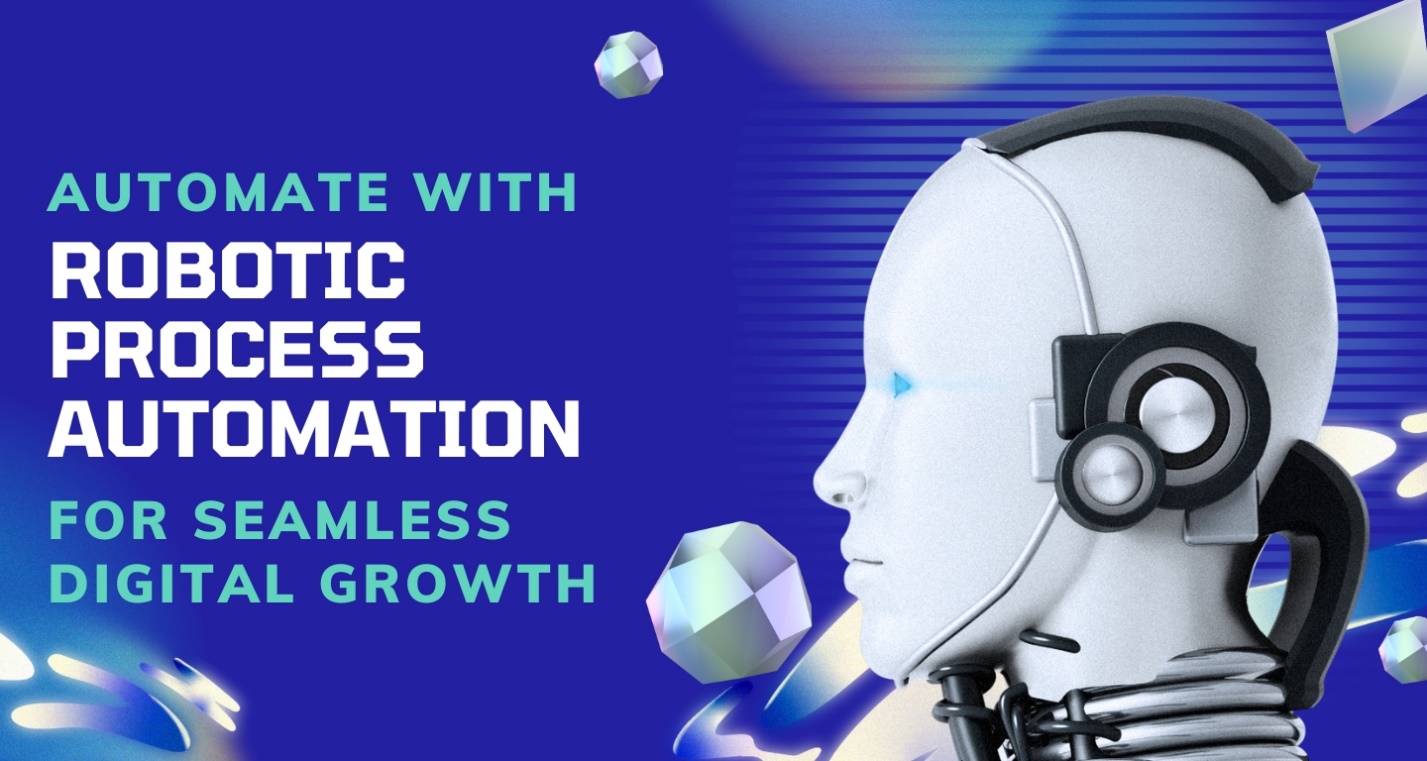In the digitally embryonic world, businesses are constantly seeking innovative solutions to streamline operations, boost efficiency, and stay ahead of the competition. Robotic Process Automation (RPA) is a groundbreaking technology that’s causing ripples across various industries. In this discussion, we explore the crucial role of RPA in driving digital transformation and revolutionizing business processes.
Robotic Process Automation in Digital Transformation
Robotic Process Automation (RPA) stands at the forefront of digital transformation initiatives, offering organizations a dynamic toolkit to automate repetitive tasks, enhance productivity, and optimize resource utilization. At its core, RPA involves the deployment of software robots, or “bots,” to automate rule-based, everyday tasks traditionally performed by humans. This technology leverages AI and machine learning algorithms to mimic human actions, interact with digital systems, and execute complex workflows with precision and speed.
Programming Languages: The Building Blocks of RPA
Behind the seamless functionality of RPA lie countless programming languages that serve as the building blocks of automation. While RPA platforms typically offer intuitive visual interfaces for bot configuration and deployment, a solid understanding of programming languages such as Python, Java, C#, and SQL is invaluable for RPA developers. These languages empower developers to customize bots, integrate with existing systems, and develop complex automation scripts tailored to specific business requirements.
RPA’s Revolution: Transforming Business Processes
The integration of Robotic Process Automation into organizational workflows criers an architype shifts in the way businesses operate, unlocking a multitude of benefits across various domains:
- Boosted productivity:By automating repetitive tasks such as data entry, report generation, and invoice processing, RPA accelerates process execution, minimizes errors, and frees up valuable human resources to focus on strategic initiatives.
- Expense Reduction:RPA offers a cost-effective alternative to manual labor, reducing operational costs associated with labor-intensive processes while delivering rapid ROI through increased productivity and efficiency gains.
- Enhanced Precision:Unlike humans, RPA bots operate with unwavering accuracy and consistency, minimizing the risk of errors and ensuring data integrity across diverse business functions.
- Scalability and Flexibility:RPA solutions are inherently scalable, allowing organizations to seamlessly adapt to fluctuating workloads and business demands without the need for significant infrastructure investments or workforce expansion.
- Compliance and Risk Management:With built-in audit trails, access controls, and compliance frameworks, RPA enables organizations to enforce regulatory compliance, mitigate risks, and maintain data security and privacy standards.
- Improved Client Experience:By automating routine tasks and streamlining processes, RPA enables organizations to deliver faster response times, personalized services, and seamless customer interactions, ultimately enhancing overall customer satisfaction and loyalty.
- Strategic Insights:Through advanced analytics and reporting capabilities, RPA empowers organizations to gain actionable insights into process performance, identify bottlenecks, and drive continuous improvement initiatives.
Real-World Applications of RPA
The transformative impact of RPA extends across diverse industry verticals, with organizations leveraging this technology to revolutionize business processes and drive innovation.
- Banking and Finance:
From automating account reconciliation and fraud detection to streamlining loan processing and customer onboarding, RPA is reshaping the way financial institutions operate, enhancing operational efficiency, and improving regulatory compliance.
- Healthcare:
In the healthcare sector, RPA is streamlining administrative tasks such as claims processing, appointment scheduling, and medical record management, enabling healthcare providers to focus more on patient care and medical research.
- Retail and e-commerce:
RPA is revolutionizing retail operations by automating inventory management, order processing, and customer support functions, thereby optimizing supply chain efficiency and enhancing the overall shopping experience.
- Manufacturing:
In the manufacturing sector, with the advanced use of programming languages, RPA is driving operational excellence by automating production scheduling, inventory tracking, and quality control processes, leading to improved productivity, cost savings, and faster time-to-market.
- Human Resources:
RPA is automating HR processes such as payroll management, employee onboarding, and performance evaluations, enabling HR professionals to focus on strategic workforce planning and talent development initiatives.
AI Development Company Leading the Charge
As the demand for RPA solutions surges, AI development companies are leading the charge, harnessing the power of artificial intelligence to design, deploy, and manage sophisticated RPA platforms tailored to meet the unique needs of diverse businesses. These companies offer a comprehensive suite of Artificial Intelligence Services, encompassing RPA consulting, implementation, training, and support, to help organizations get on their digital transformation journey impeccably.
Key Takeaways
Robotic Process Automation (RPA) is a game-changer in the period of digital transformation, empowering organizations to automate routine tasks, optimize workflows, and drive operational excellence across diverse industry verticals. As businesses navigate the complexities of the digital age, embracing RPA’s revolution is essential to staying competitive, agile, and future-ready in an ever-evolving marketplace.

